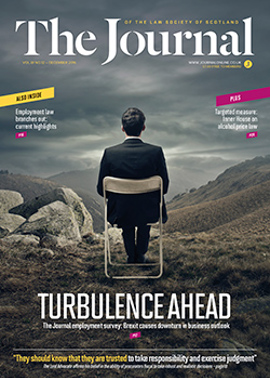The limits of free web access

Two recent decisions of the CJEU shed light on aspects of copyright infringement in the digital age. These decisions have practical implications for any businesses which operate websites and/or free wifi networks.
Hyperlinking
In GS Media BV v Sanoma Media Netherlands BV (C-160/15), 8 September 2016, the CJEU considered whether providing hyperlinks to infringing content was, in itself, an act of copyright infringement.
One of the Netherlands’ most popular news websites, owned by GS Media, provided links to a third-party website which was hosting infringing copies of photos in which Playboy owned copyright. The question was whether this entitled Playboy to sue GS Media for copyright infringement, even though the infringing photos were not hosted on GS Media’s own website.
The CJEU held that a business providing a hyperlink to infringing content hosted on a third-party site should not be found liable for copyright infringement unless (1) the business was providing the link for financial gain; and (2) the business knew (or should have known) that the links were to unauthorised content.
This decision clarifies that copyright holders can pursue businesses which provide hyperlinks to third-party websites hosting infringing content, if the businesses are doing so for financial gain. They can pursue the business providing the hyperlinks as well as pursuing the third-party website operators themselves.
It also places an onus on businesses that intend to provide hyperlinks to third-party websites, for financial gain, to carry out due diligence into whether the content on those websites is infringing. There will be a rebuttable presumption in such cases that the business ought to know whether or not the content is infringing. As the CJEU said: “When the posting of hyperlinks is carried out for profit, it can be expected that the person who posted such a link carries out the necessary checks to ensure that the work concerned is not illegally published on the website to which those hyperlinks lead, so that it must be presumed that that posting has occurred with the full knowledge of the protected nature of that work and the possible lack of consent to publication on the internet by the copyright holder.”
The CJEU did not specify what was meant by “for profit” in this context. Will businesses that provide hyperlinks, but do not seek to make a profit through their websites, be expected to carry out this due diligence first? The safest course of action is for businesses to revisit their publication and advertising practices to ensure that they avoid hyperlinking to content which may infringe copyright.
Free wifi
In McFadden v Sony Music Entertainment Germany GmbH (C-484/14), 15 September 2016, the CJEU considered the extent to which providers of free wifi networks should be liable for acts of copyright infringement carried out by network users. Many businesses, particularly retail businesses, provide free wifi to customers, so this decision affects all such businesses.
McFadden ran a sound and lighting shop, and offered a free wifi network in order to attract potential customers. The network was not password protected, so anyone in the vicinity of the shop could freely access it. In 2010 the network was used to upload a song in which Sony owned copyright. Sony served a notice on McFadden advising of their rights. McFadden raised court proceedings, seeking a declaration that he was not liable for this alleged infringement. Sony counterclaimed.
The E-Commerce Directive (2001/31/EC), article 12(1) provides an exemption from liability for “information society service” providers, known as the “mere conduit” exemption. Provided certain conditions are met, rights-holders can obtain interdicts, and costs, against such providers, whose services are being used to infringe copyright, but cannot obtain damages from them.
McFadden argued that providers of free wifi networks should be able to benefit from this defence. The CJEU agreed. Since McFadden was providing free wifi as part of his efforts to advertise his business’s goods and services, this could be classified as an information society service to which the exemption applied.
The CJEU ruled that in seeking orders aimed at preventing networks being used to infringe copyright, rights-holders could obtain (at the discretion of the national court) interdicts or court orders requiring providers of free wifi to password-protect their networks, and to require network users to provide some identifying information, so they are not using the network anonymously. However, that has implications for the users’ right to privacy, a point which was not addressed in the judgment.
This decision is of considerable interest to all businesses which provide free wifi services to customers. It confirms that such businesses may not be held liable for infringements committed by network users. However, to mitigate the risk of being the subject of such court proceedings brought by rights-holders, thus risking liability for costs, it is worth considering using password-protected wifi networks that require users to provide identity details before access is given.
In this issue
- FAI Rules: a guide to the consultation
- Saying sorry – is it enough?
- Repairing obligations for common parts
- Journal reader survey feedback report
- Reading for pleasure
- Tax: is your firm paying over the odds?
- Opinion: Judith Robertson
- Book reviews
- Profile
- President's column
- Altered deeds? Mind the rules
- The clouds gather
- Turning points: employment law into 2017
- Policy and the public interest
- Above the minimum
- Where code meets custom
- Child orders: mind the gap
- EU law, a family affair
- People on the move
- Information age?
- The limits of free web access
- Tenant farming: the new guidance
- Insolvency: cross-border clashes
- Foul play on the agency front
- Scottish Solicitors' Discipline Tribunal
- Comm prop and the Holy Grail
- Leisure – the serious side
- New anti-money laundering support
- Law reform roundup
- Brexit: helping to shape the outcome
- Transition to Lockton – your questions answered
- Expertise plus: promoting a sector strength
- Paralegal pointers
- Time to look back – and forward
- Everything comes...
- Ask Ash






